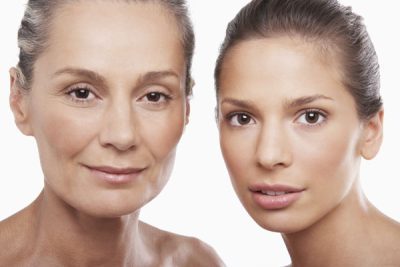Skincare Through the Ages
Advertiser Content
Dr. Anisha R. Kumar, Otolaryngology, Facial Plastic and Reconstructive Surgery
 As we age, our bodies change in numerous ways – including, of course, our skin. But those changes are not limited to the wrinkles and so-called “liver spots” that many of us associate with old age. In fact, there are important steps we can all take during each stage of life to promote and maintain strong, healthy skin.
As we age, our bodies change in numerous ways – including, of course, our skin. But those changes are not limited to the wrinkles and so-called “liver spots” that many of us associate with old age. In fact, there are important steps we can all take during each stage of life to promote and maintain strong, healthy skin.
Everyone should be using sunscreen whenever they’re spending time outside, no matter the season. This applies to patients of all skin types and colors. The general recommendation is to apply sunscreen (SPF 30 or higher) 30 minutes before heading outside, and reapplying every two hours (or immediately if you’ve been swimming or working up a lot of sweat). Remember that UV rays can penetrate even the heaviest clouds.
In addition, for preteens, I encourage using a gentle cleanser and moisturizer to nourish and keep their skin healthy. Harsh scrubs or cleansers containing alcohol and other astringents can dilute your skin’s natural oils, resulting in dryness and irritation.
Skin challenges for teenagers and young adults are generally well-known, with puberty causing hormonal changes that can result in acne and the increased use of makeup posing its own complications.
Tip: Again, using a gentle cleanser once or twice a day can help. Over-the-counter acne-specific treatments can combat the bacteria that cause pimples; for more severe cases, talk with your dermatologist for topical and oral medication options. Moisturizers can again be beneficial, even for patients with baseline oily skin.
Improper removal of makeup can lead to a buildup of pollutants, dirt, oils, sweat, and other substances on the surface of the skin, clogging pores and leading to additional problems. Discussing with a healthcare provider about the best approach for your skin is therefore highly recommended.
Those in their 20s and 30s need to know that their epidermis (the top layer of your skin) and dermis (the middle layer) may start thinning due to their lifestyle, genetics, and/or environment. This process can weaken the skin’s barrier to UV rays, leading to the beginning of sun damage (mostly preventable by using sunscreen).
In addition, your body’s production of collagen – a protein found in your muscles, tendons, skin, ligaments, and bones, helping your body to maintain its shape and structure – can begin to degrade by 1% each year beginning at age 30, resulting in loose skin and a lessening of elasticity in your ligaments and an increase in joint stiffness.
Tip: In addition to using sunscreen, cleansers and moisturizers, consider adding a Vitamin C serum in the morning as well as a Vitamin A derivative such as retinol or tretinoin to stimulate collagen production and increase your skin cell production. Please note: Vitamin A products should not be used if you are pregnant or are nursing.
When you’re in your 40s and 50s, your epidermis will increasingly become thinner and lose its ordered structure, while your dermis will lose its water-binding ability; the result is that your skin will feel rougher, and you will see more wrinkles and fine lines appearing.
Tip: Adding a hyaluronic acid serum for hydration and increasing moisturization are ways to minimize such changes.
Finally, for those 60 and older, you will experience a further decline in collagen, more rough-feeling skin and more wrinkles.
Tip: Wisely choosing the right moisturizer (preferably scent-free to avoid chemicals that can further dry your skin), limiting your exposure to the sun (and always using sunscreen), and keeping baths or showers on the short side to minimize hydration issues, are all recommended; your healthcare provider can make other suggestions.
Furthermore, regularly check yourself for signs of skin cancer. While the highest rates for skin cancer are in those aged 85 and above, due to literally a lifetime of sun exposure, it is not unheard of for people in their 20s and above to develop this disease. The best time to do a skin self-exam is after a bath or shower, checking for any moles, blemishes, or birthmarks from the top of your head to your toes. Contact a dermatologist if you notice even the slightest change.

Following the above recommendations, augmented by a discussion with a qualified health professional, can keep your skin healthy and even glowing through the years. As with most good things, it takes a little work – but the benefits are worth it!
Dr. Anisha R. Kumar is the Director of Facial Plastic and Reconstructive Surgery at White Plains Hospital. For an appointment, call 914-849-3755.
Health Matters
The original version of this article was published in Health Matters, a White Plains Hospital publication.

Examiner Media – Keeping you informed with professionally-reported local news, features, and sports coverage.
